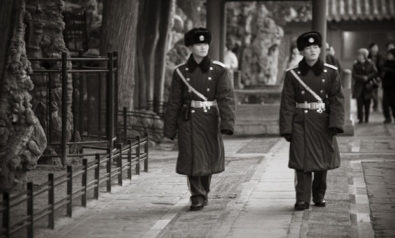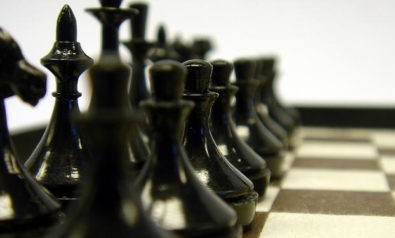
India’s precarious position between Pakistan and China makes its self-defence system crucial.
Background
On 19 April 2012 India launched its Intercontinental Ballistic Missile, Agni-V, from Wheeler Island off the east coast of India. Agni-V has a range of nearly 5000km (3000 miles) and features Multiple Independently Targetable Re-entry Vehicles (MIRVs) with each missile being capable of carrying two to ten separate nuclear warheads. It gives India the strategic advantage of being able to strike major cities of its neighbors, including Beijing.
The first missile of the series, Agni-I, was successfully developed by the Defence Research and Development Organisation (DRDO) under the Integrated Guided Missile Development Program in 1991. India realized the program’s strategic importance, so it was provided with adequate funds. Apart from the Agni series, the DRDO has been developing its K family of missiles, a series of Submarine-Launched Ballistic Missiles (SLBM), developed by India to boost its second-strike capabilities and thus the nuclear deterrence.
Neither the country’s slow economic growth rate nor the political instability due to recurring scams at the center has hindered the prestigious self-defence projects.
In 2005, India became the fourth country to have Anti-Ballistic capability when they tested two systems: the Prithvi Air Defence (PAD) missile for high altitude interception, and the Advanced Air Defence (AAD) for low altitude interception. In early 2011, India deployed Arjun, its first indigenous tank, along India's border with Pakistan. In January 2012, the Indian government announced that the French Dassault Rafale would replace its ageing Mirage fleet. A deal estimated to be worth US$10.6 bn.
In April 2012, India leased the INS Chakra II from Russia, a submarine capable of deploying nuclear weapons. This catapulted India into an elite list of nations holding nuclear weapons, including the US, Russia, France, the UK and China. Also, the increased joint military exercises with foreign countries have strengthened India in the recent past.
Why is India’s Self-Defence Important
India has always portrayed itself as the Big Brother of the subcontinent, its strength proving beneficial to many countries that depend on it for trade and security. India is the only known country with nuclear weapons which is not part of the Nuclear Non-Proliferation Treaty (NPT) but is still allowed to carry out nuclear commerce with the rest of the world.
Despite the fact that it was India which launched the missile, the entire focus of the world press has been on Beijing. Speculations of the missile being developed with Beijing being the primary target were rampant. Despite these speculations, China demonstrated that they were not concerned and Pakistan did not protest, making India’s military progress probably the most peaceful in the history of modern world.
Pakistan’s recent increase of nearly 10% in its defence budget and China’s incredibly high military spending make India’s future military projects inevitable. Encouraging responses from NATO, US and the European countries suggest that India’s progress may even end up providing stability to the otherwise volatile region.
For more than 10 years, Fair Observer has been free, fair and independent. No billionaire owns us, no advertisers control us. We are a reader-supported nonprofit. Unlike many other publications, we keep our content free for readers regardless of where they live or whether they can afford to pay. We have no paywalls and no ads.
In the post-truth era of fake news, echo chambers and filter bubbles, we publish a plurality of perspectives from around the world. Anyone can publish with us, but everyone goes through a rigorous editorial process. So, you get fact-checked, well-reasoned content instead of noise.
We publish 2,500+ voices from 90+ countries. We also conduct education and training programs on subjects ranging from digital media and journalism to writing and critical thinking. This doesn’t come cheap. Servers, editors, trainers and web developers cost money.
Please consider supporting us on a regular basis as a recurring donor or a sustaining member.
Support Fair Observer
We rely on your support for our independence, diversity and quality.
Will you support FO’s journalism?
We rely on your support for our independence, diversity and quality.






